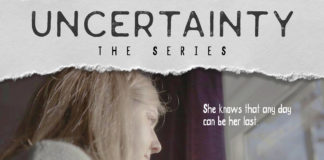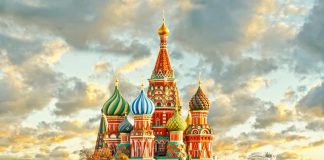The tree that overshadowed the earth
"[Jesus] told them another parable: 'The kingdom of heaven is like a mustard seed, which a man took and planted in his field. Though it is the smallest of all seeds, yet when it grows, it is the largest of garden plants and becomes a tree, so that the birds come and perch in its branches.' He told them still another parable: 'The...
“Uncertainty: the series.” First episode of the international documentary online today
Live every day like it is your our last! Many use these phrase as a prop for their riskiest decision, or simply to justify a recklessly extravagant lifestyle. But what would our lives look like if we were to really live each day fully aware that it might be our last?
“He wrote our story”—but not in the way they had hoped
Their third wedding anniversary was just around the corner, but doctors had given Magda, belatedly diagnosed with Ewing's sarcoma, a malignant bone tumour, no chance of recovery. Yet her husband Daniel continued to believe that God still had the last word.
The stable with the iron bars
At the end of every year, a covert censorship obscures the true meaning of the event that split history in two: the birth of Jesus. Under the festive guise of Christmas, the celebration of the birth of Jesus Christ has been culturally transformed into a holiday of good cheer. The religious motif has been preserved, but the spiritual meaning has largely been lost.
The end of the world: on the list of convictions that frighten us
A good survey of people's thoughts on the end times would not seek to find out whether people believe the world will end or not. Rather, it would seek to know what their thoughts are on when and how the end will come. Regardless of the source of their belief—religious or secular—most people have come to see the idea of the end of...
The solution to addiction doesn’t come from within
How should addictions be understood? Addiction is usually regarded as a failure of the will, or as a sickness. Lately, the tendency is for the younger, educated generation to embrace the second answer. The idea that addiction is a failure of the will, a sin, from a Christian perspective, is seen as outdated.
Into the wilderness with God
This year marks the 58th anniversary of Time magazine's controversial cover question: Is God Dead?
COVID-19: Could giving up ever be the key to success?
Pray! If not to God, then to a god. Admit that we are defeated, because this is the first step towards victory.
An American in Moscow: The story of a spiritual transformation
Andrew McChesney knew what he wanted—to be a famous journalist. He thought Moscow would be a good place to learn his craft and make a name for himself, which he did. But his years in Russia shaped his life in a much deeper way—it was there that he discovered God and found new meaning in life.
God called Himself Father
In the heart of the Garden of Eden, where everything seems perfect, there is an ancient struggle between freedom and restriction—a struggle we have all experienced.
Loving till we see an end to sad stories
We carry sad stories with us, and the meaning of these stories often eludes us. What if we discovered that these stories provide unique opportunities to change lives? Cori Salchert discovered, through family tragedy, the resolve and desire to take care of children with terminal illnesses.
Christ’s soldiers on the world’s front lines
“Prayer at the centre of our mission and mission at the centre of our prayer.”– Salvation Army catch-phrase
Decoding the EU’s place in Bible prophecy
Europe is more divided than ever. What does that mean for our reading of biblical prophecy?
Atheism at war
As the rising sun brought life and light to the east coast of North America, it was greeted by a brisk autumn morning. Hurricane Erin was on the move in the Atlantic, creating heavy rainfall from Newfoundland to Bermuda. A cold front saved most of the eastern seaboard from the hurricane’s destruction and the resulting high-pressure front produced clear skies—perfect conditions for air travel.
Jesus is the argument
Celsus was concerned about the spread of the new sect called Christianity. He felt that Christianity's view of the world and of life was so different from the ancient world order that, if accepted by the majority, it would ruin society.


























